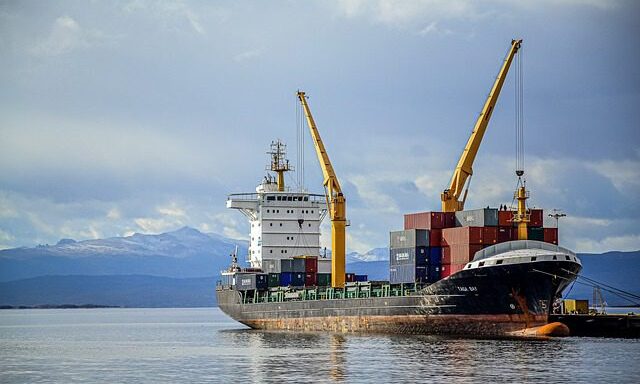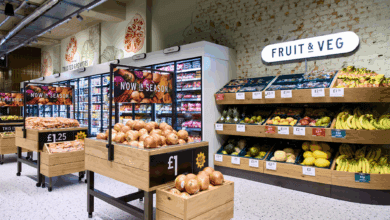How Trump’s tariffs could affect UK retailers
Retail Sector talks to Cristian van Tienhoven, European CEO of Global-e, about the specifics of the new trade laws in the US and how to prepare your business

Register to get 1 free article
Reveal the article below by registering for our email newsletter.
Want unlimited access? View Plans
Already have an account? Sign in
US President Donald Trump has spent his first few weeks in power threatening to and actioning a number of moves which affect imports into America. While most of this has been focused upon Canada, Mexico and China it could have wide ranging effects across the globe. Trump is embarking on a two pronged assault on trade, removing the de minumus exemption and placing tariffs on goods from Mexico, Canada and China. It must be said that Trump is very volatile so what is likely to happen one day can change course the next.
The de minimis exemption
The first and most obvious effect on British retailers is the removal of the de minumus exemption. In short, the de minimis exemption is a trade loophole that dates back to the 1930s allowing items imported into the US under the value of $800 to enter free of duty and taxes, instead being “subject to expedited clearance processing”. For small retailers this meant that selling products in America was easy and came at no extra cost to the customer.
This has now changed. The Trump administration has moved to get rid of this exemption meaning that all goods imported into America are now subject to duty and taxes. This will mean that retailers will now have to file much more paperwork to get their products cleared to enter the country. Fail to set your tax and duty calculator and remittance correctly and customers could potentially be unexpectedly asked to pay to collect their products when they arrive. This is obviously an increased cost to businesses and could lead to more returns as customers may refuse to pay extras.
What about the tariffs?
On the face of it it seems as though the tariffs will not affect the UK. The Trump administration was set to place a blanket 25% tariff on all products from Mexico and Canada but has since pushed this back a month. It also seems that Trump is looking to place tariffs on imports from the EU, however the UK’s cordial relationship with the president seems to indicate that it will be spared for now.
However, where it begins to affect UK retailers is the 10% tariff the administration has placed on all Chinese goods. The issue is that these tariffs are country of origin, meaning that any product made in China, irrespective of where the company shipping the product is based, will be subject to tariffs. This is bad news as many companies have products made in China, especially clothing brands. This will add extra expense to doing business in America as it is likely that businesses will have to increase their prices to absorb the cost of the tariffs and the extra administrative costs that come along with them.
Cristian van Tienhoven the European CEO of Global-e, an e-commerce company that helps retailers “enable and accelerate” global, direct-to-consumer cross-border sales. Global-e works with brands such as Harrods, All Saints, Trapstar and Marks and Spencer. He explains that retailers are not prepared to deal with this, especially at such short notice, and this is likely to cause a lot of increased costs.
“Very few retailers are geared up to deal with the complexities of tax filings, of managing carriers, all of these things. Their systems are not flexible. When these changes are imposed, it’s difficult to manage. If they want to switch who ships the product, it takes months, and it’s not their core competency.
“What they know how to do is build a brand. They know how to tell stories. They know how to display products really well. They know how to price them in a way that will attract the most customers. No retailer is famous for managing their taxes really well,” he says.
How can you insulate your business from sudden change?
As previously mentioned and as was shown in the decision around tariffs on Canada and Mexico, Trump’s mind can change on a whim. While the UK is safe for now, one wrong step and the UK could become the next target. The most important thing to do is be nimble, this is easier for smaller businesses.
Van Tienhoven states “it’s going to be very disruptive and worst case it’s going to hit profitability”. He believes that the guiding mantra has to be making it as easy and painless as possible for the customer to buy and receive your product. If you’re planning to do business in America you have to be prepared to change your administrative processes to absorb whatever is needed.
He also stresses the need to be transparent with the customer. If tariffs and other trade restrictions mean that you have to increase your prices, do so but don’t hide it. Make sure the sticker price reflects the true price of the transaction rather than waiting till checkout or even later to add in any shipping costs.
Furthermore, he states that you should broaden your network of couriers. According to van Tienhoven some couriers are already beginning to experience blockages at customs, so it is important to have a number of options to transport your products, that way you can quickly adapt to any changes.
Overall, it remains to be seen whether these tariffs will hold and whether new tariffs will be put into place. The overarching advice is to stay nimble, be prepared for an increase in paperwork and be honest with your customers to keep brand loyalty high.







